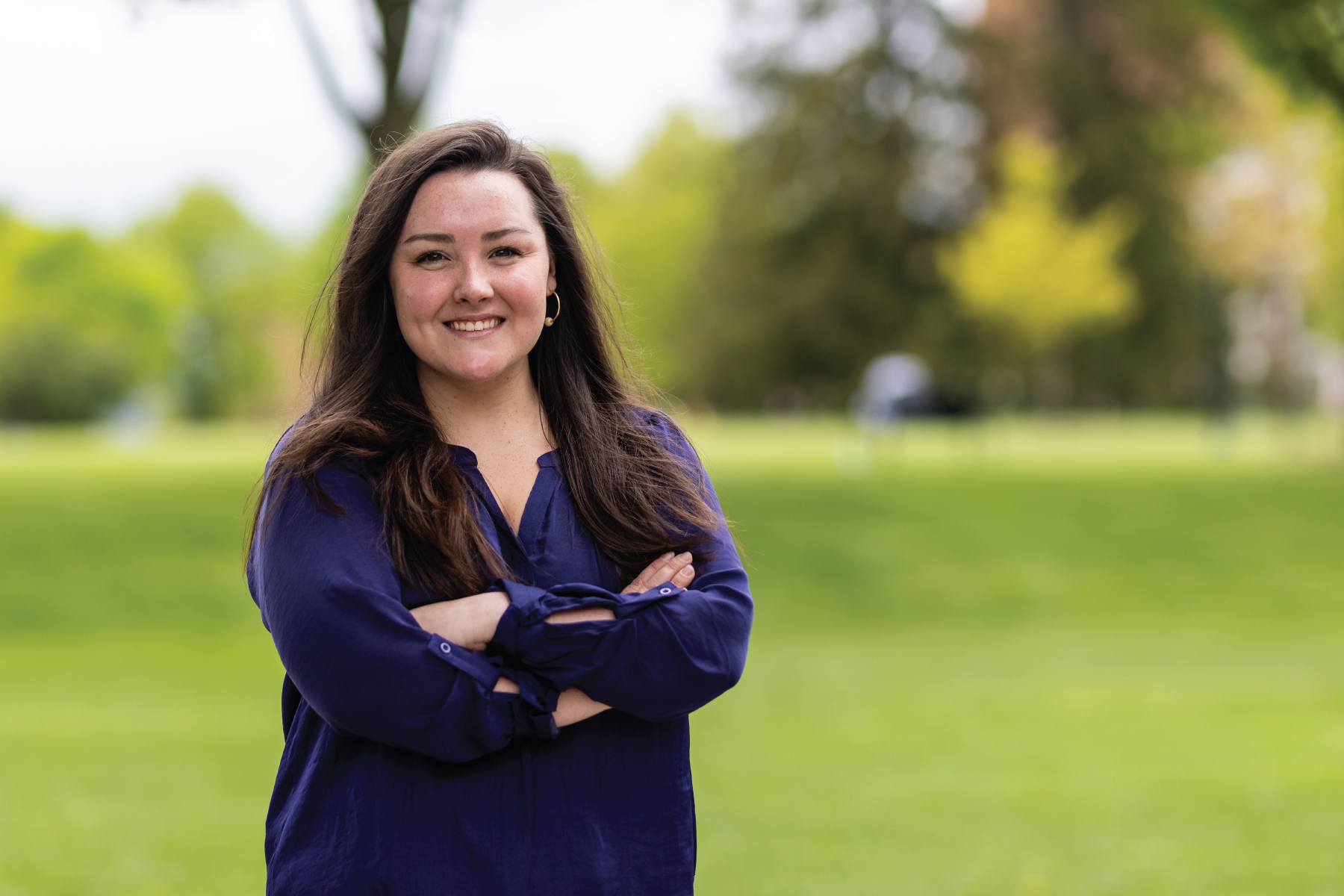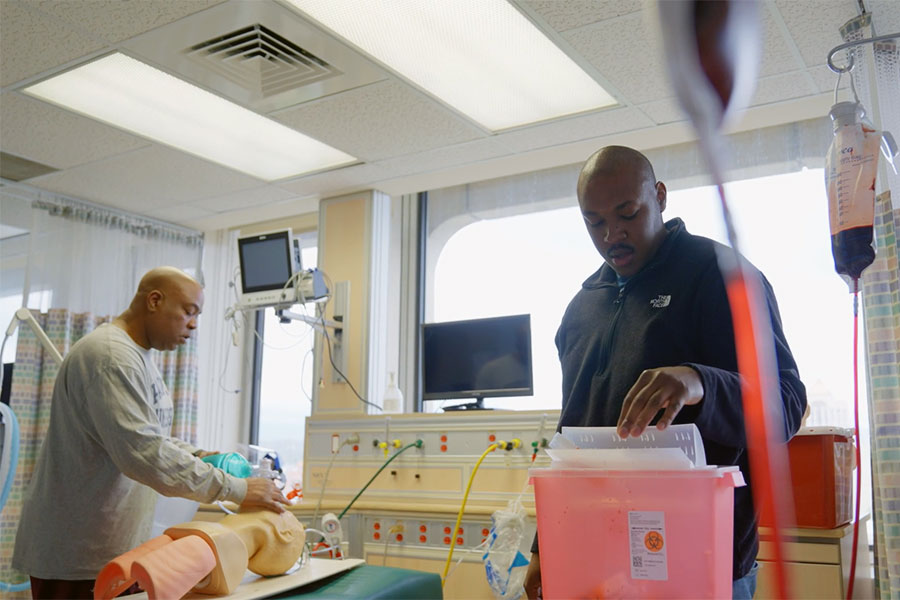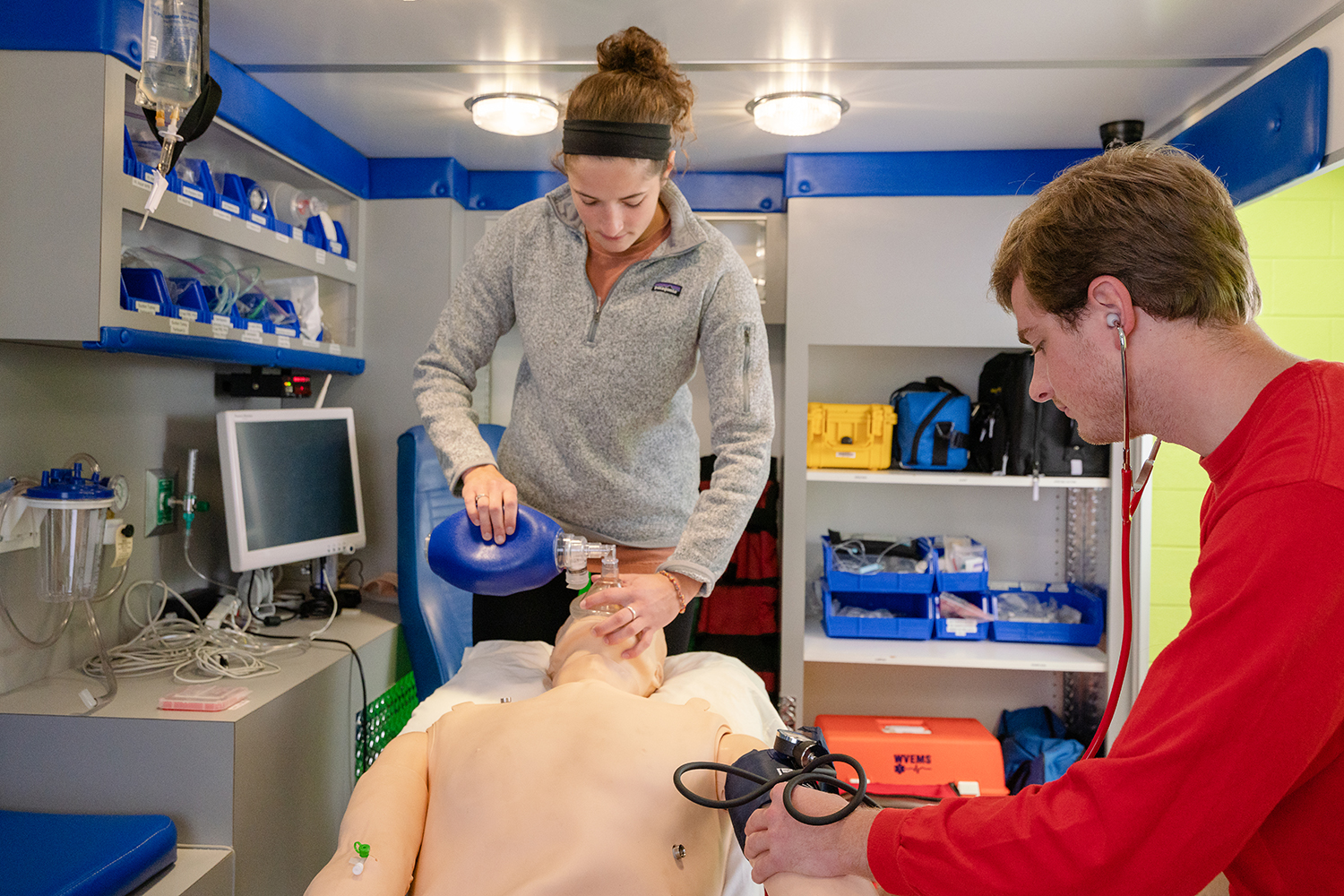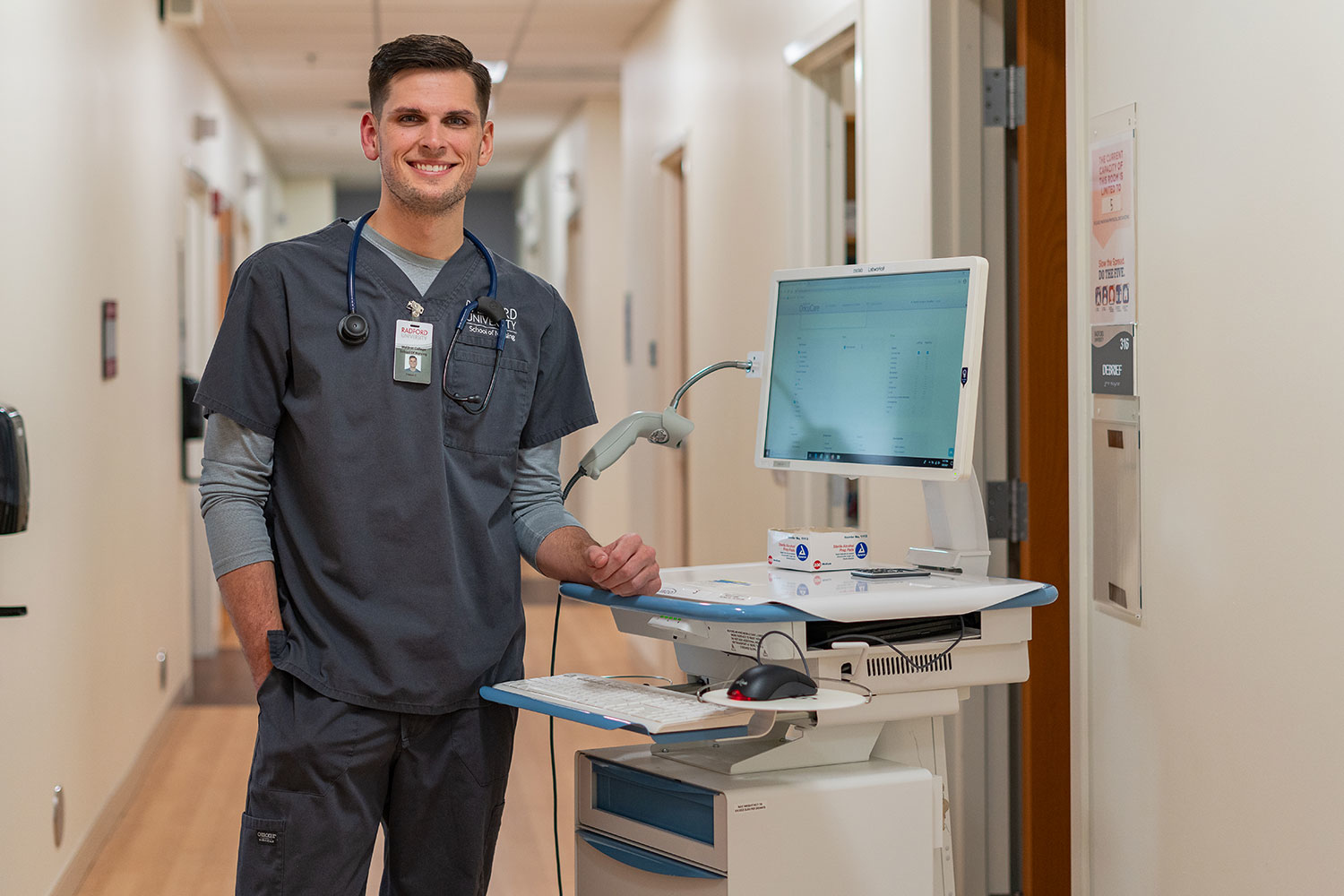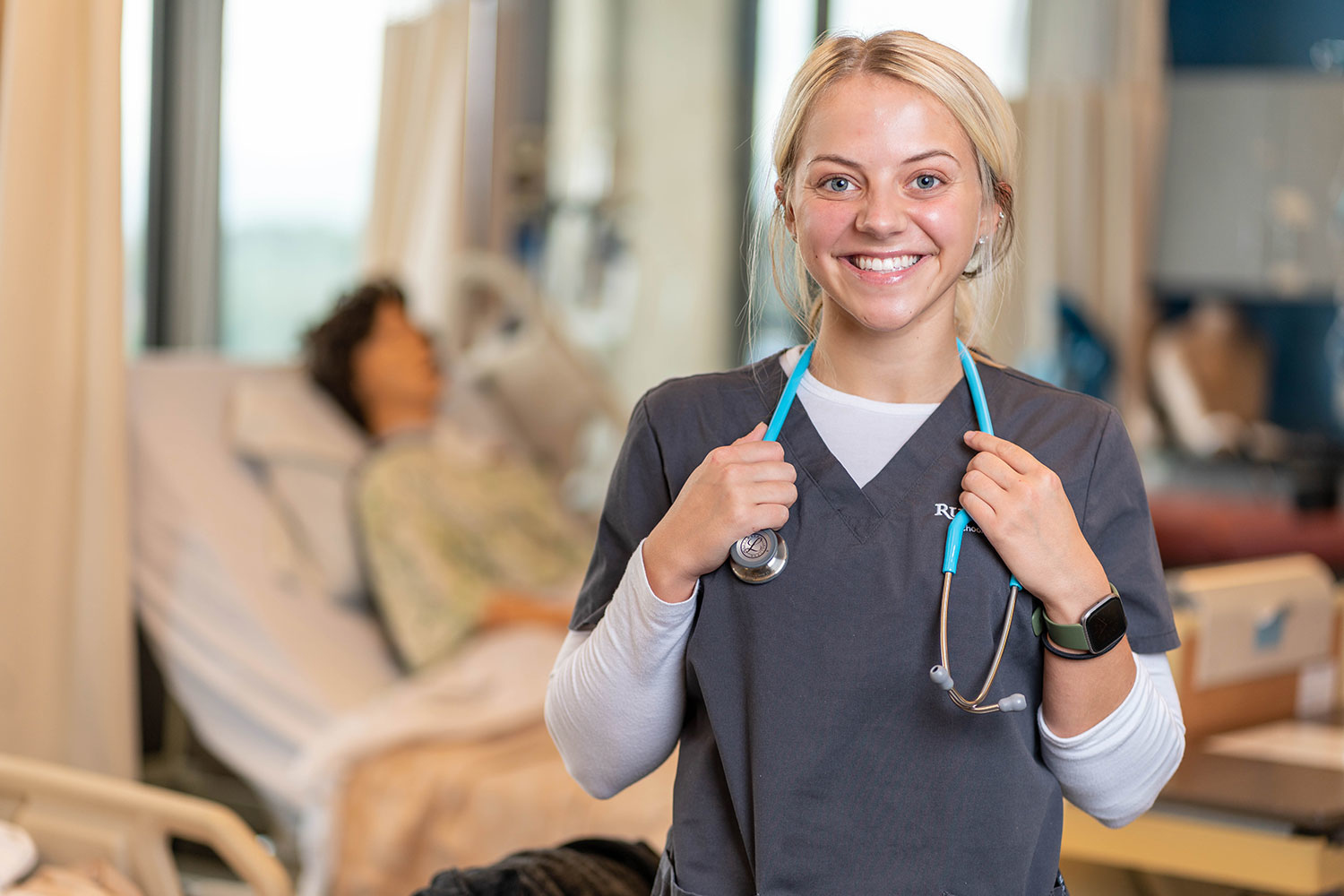Radford University
Respiratory Therapy
- Degree Type
-
- Bachelor of Science
- Location
-
- Radford University at Carilion in Roanoke, VA
- Format
-
- In-Person
Overview
The Respiratory Therapy (RT) program seamlessly blends classroom, lab and clinical components designed to prepare students for careers as respiratory therapists. There is a growing demand for highly skilled practitioners, and the RT program has the classes, faculty, real-world experience and state-of-the-art facilities to professionally prepare you.
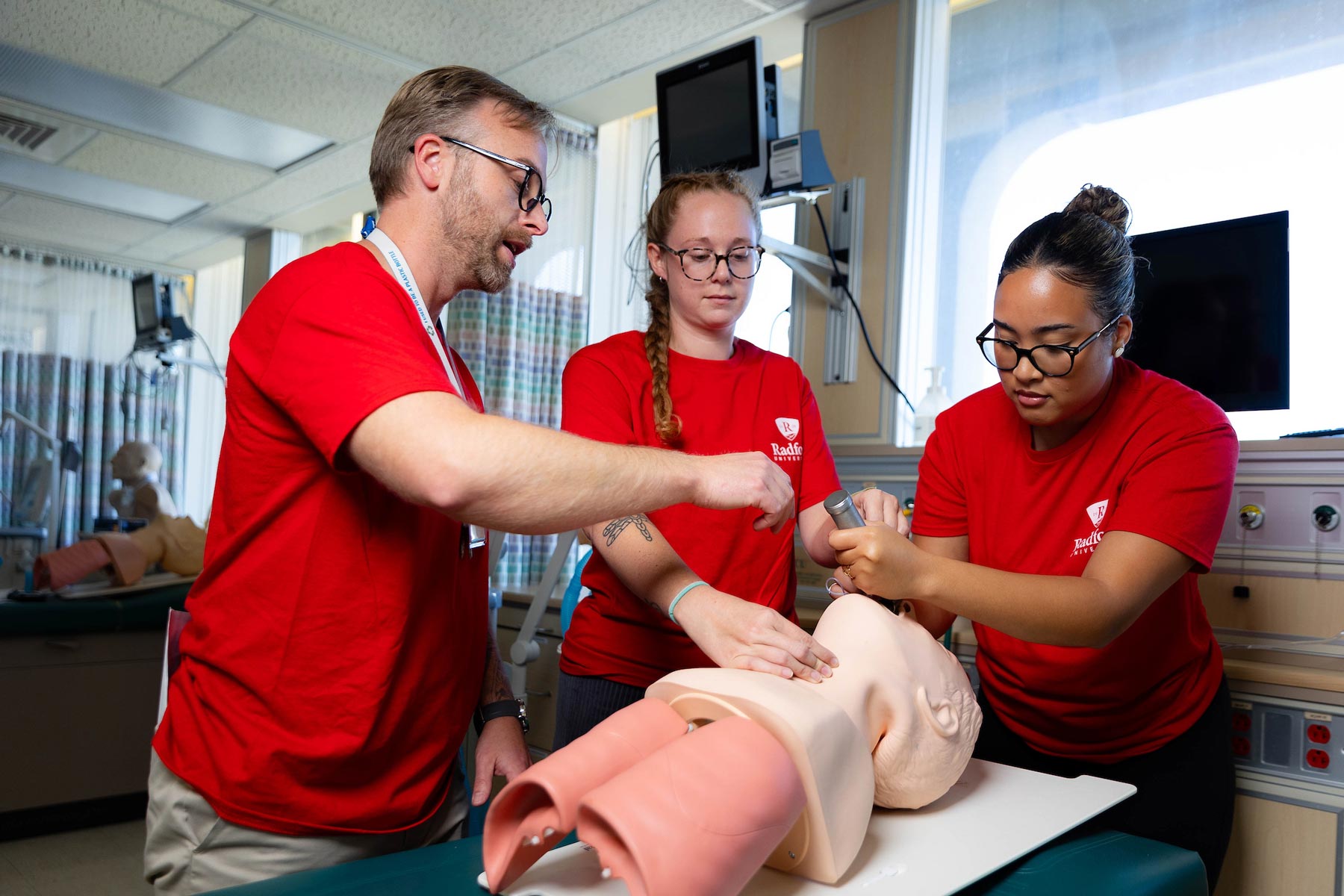
“My experience in this program has been nothing short of wonderful. It helped guide me in finding what I am passionate about and what I ultimately want out of my future career. I’m excited about the positive impact I have and will continue to make on patients’ lives.”
Rachel Warren, ‘23
